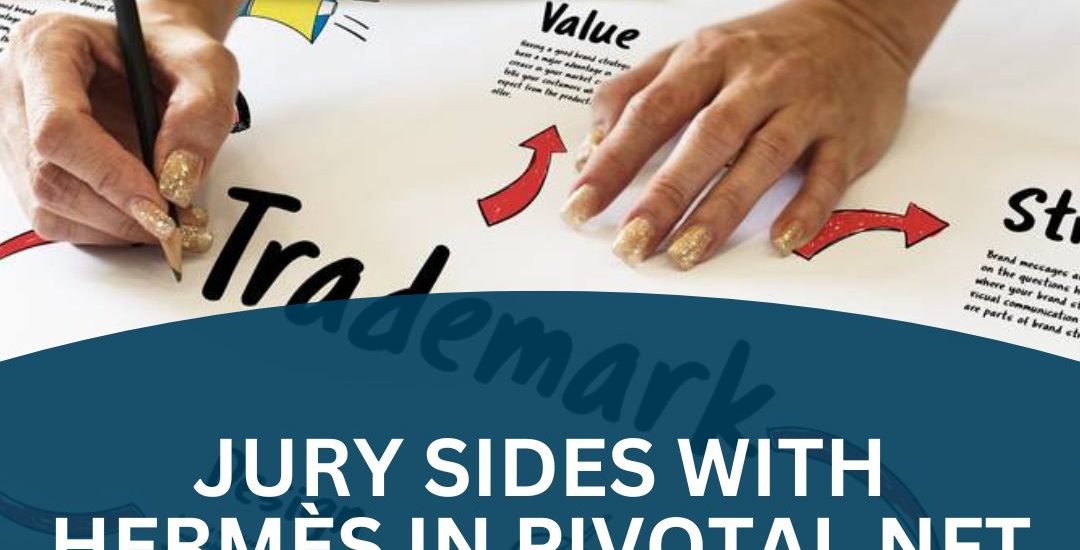What do you get when you cross a French luxury goods company with Google? You get into a legal battle, of course. In the latest development in the long-running dispute between Hermès and Google, a London court sided with Hermès in its claim that Google had infringed on its trademark for “NFT.”
In the high-stakes world of fashion, trademarks are more important than ever. If you want to create a product that uses a famous designer’s name or trademark, you need their blessing. And recently, Hermès seems to have had some tough luck regarding trademark disputes. The decision could have far-reaching implications for the fashion industry, particularly in intellectual property (IP). This case has been watched with great interest by fashion brands and consumers alike because it touches on an often-sensitive issue: what constitutes a work of art?
In February’2023, the jury found in favor of Hermès in its long-running dispute with Qiwi over the latter’s use of the “Hermes” trademark for online transactions. The case has drawn interest from around the world because it revolves around one of the most iconic fashion brands in the world.
What is an NFT?
A file’s addition of NFT (non-fungible token) data yields a distinctive signature. It can be a real thing, a digital image file, music, a tweet, a text uploaded on a website, or various other digital formats. That suggests that a person may possess a digital file that has been coded to distinguish it from any digital copies.
The dispute between Hermès and Google revolves around using the word “NFT” by Google. Hermès says the term embodies exclusivity and has registered the mark in various countries, including the U.S. In January 2016, Google agreed to stop using the term but did not indicate when or how it would do so, according to litigation documents filed by Hermès last year.
What was the court’s verdict on the case?
The jury has ruled in favor of luxury brand Hermès, preventing Finnish company H&M from registering a trademark for the term “Hermès scarves.” The judges came to the same conclusion as Hermès, concluding that the NFTs should have been regarded as merchandise rather than works of art. This judgment helps to clear up the confusion around intellectual property caused by NFTs and the metaverse by defining to what degree real-world trademark rights extend in the digital sphere. The dispute centered on whether H&M had acquired trademark rights to the name and logo after purchasing several Hermès scarves from online retailer Zalando.
The move could have major implications for the fashion industry, as other brands may now shy away from using similar trademarks to protect their intellectual property. In a statement, H&M said it was “reviewing the decision and preparing our response.”
This case clearly illustrates how well-known trademarks can be protected through legal action. By obtaining this trademark registration, Hermès effectively prevented H&M from marketing its own competing products under the name “Hermès.” This ruling sends a strong message to other companies that want to protect their intellectual property: ensure you have the rights to your trademark before filing a registration application. In this case, the jury sided with Hermès. They found that the use of Birkin-shaped bags as a part of the handbags was not simply utilitarianism; it was an element that enhanced the aesthetic value and brand awareness associated with the products. In other words, it was considered a design feature. This is thanks to product development and marketing innovations over the past few decades, which have made features like hardware more important than ever.
If you’re considering trademarking your business or product, take note of this case. It’s proof that even well-known brands don’t always win legal battles against competitors who try to infringe on their trademarks. So properly protect your trademark (s) before starting any marketing campaigns.
Conclusion
This case has broader implications as it could set a precedent for other disputes involving trademark rights over similar terms. Suppose you are involved in any intellectual property dispute where another company claims exclusive rights over a specific term or logo. In that case, it is important to consult with an attorney who can help you ensure your rights are defended. IP-related issues are forever hot topics, and these cases might make you worried about the IP security of your business or invention. But worry no more! Brelant is an accomplished IP services provider firm that deals with the related aspects of intellectual property. For more information, visit the website and get professional advice from the team of experts.


